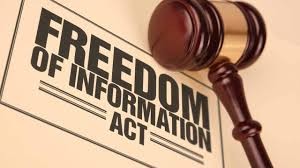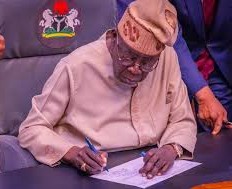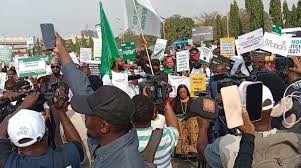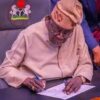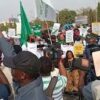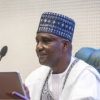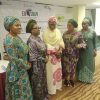The Independent National Electoral Commission has granted the request from V-C Ottaokpuku & Associates, a law firm seeking a certified true copy of the National Register of Voters and information on all existing polling units across Nigeria, in accordance with the Freedom of Information Act (FOIA) 2011. The Commission, however, stipulated a processing fee of
The Independent National Electoral Commission has granted the request from V-C Ottaokpuku & Associates, a law firm seeking a certified true copy of the National Register of Voters and information on all existing polling units across Nigeria, in accordance with the Freedom of Information Act (FOIA) 2011. The Commission, however, stipulated a processing fee of N1.5bn.
The Secretary to the Commission, Rose Oriaran-Anthony, confirmed in an October 13, 2025 letter titled “RE: Application for Certified True Copy of Register of Voters and All Existing Polling Units in Nigeria under the Freedom of Information Act (FOIA), 2011.”
The letter, responding to the Freedom of Information request sent by the law firm on October 8 for access to the document, stated that the request was approved under Section 15 of the Electoral Act, 2022, which provides for access to electoral information.
Although the FOIA request was approved, the electoral commission maintained that the document would only be released upon payment of One Billion, Five Hundred and Five Million, Nine Hundred and One Thousand, Seven Hundred and Fifty Naira (N1,505,901,750) to cover production costs.
The electoral commission also urged that the payment be made through its official Remita Retrieval Reference (RRR) platform, with proof of payment required before the request could be processed.
The letter fully reads “RE: APPLICATION FOR CERTIFIED TRUE COPY OF REGISTER OF VOTERS AND ALL EXISTING POLLING UNITS IN NIGERIA UNDER THE FREEDOM OF INFORMATION ACT (FOIA), 2011.
“I write to acknowledge receipt of your letter dated 8th October, 2025, on the above subject matter.
“The Commission has approved your request for a copy of the National Register of Voters for the entire country and the existing polling Units in all the Electoral Wards in Nigeria pursuant to section 15 of the Electoral Act 2022.
“You are hereby requested to pay the sum of One Billion, Five Hundred and Five Million, Nine Hundred and One Thousand, Seven Hundred and Fifty Naira only (N1,505,901,750) being the cost of production of the above.
“Kindly pay the said amount into INEC Remita Retrieval Reference (RRR) (www.remita.com) and present the proof of payment (e-receipt) in order to proceed with your request.
“Accept the assurances of the Commission’s regards, please.”
In response to the development, several Nigerians have expressed concern regarding the electoral commission’s requirement for a substantial fee to obtain public documents.
In its statement, the African Democratic Congress expressed concern regarding the situation, saying, “It is difficult to reconcile INEC’s request for N1.5 billion for public information with its claims of transparency. Such actions raise serious questions about democratic processes and financial accountability.”
Ebere Anosike called INEC’s demand of over N1.5 billion for a soft copy of the voter register “ridiculous,” questioning if MDAs use the FoI Act to increase revenue rather than promote transparency. He warned that this approach could harm the country if other MDAs follow suit.
On social media, @sabmanny commented, “If this document is genuine, the response is absurd. Why not use soft copies in 2025? Isn’t this the same @inecnigeria investing billions in election technology?”
Defenders of the electoral commission argue that producing a ‘certified true copy’ of the voters’ register may be costly.
A legal practitioner, identified as Foundational Nupe Lawyer on X, commented on the electoral commission’s request for payment. The lawyer noted, “I have seen many people ask why INEC cannot provide a soft or digital copy. My question is: how is that possible when the request was for a Certified True Copy? Does INEC possess the capability to certify documents without printing them?”
Requesting a certified true copy of a public document involves having the document photocopied, with each page stamped and signed by an authorised officer who indicates their name, position, and signature.
Should INEC cover photocopying costs? Section 8 of the FoI Act limits fees to standard charges for duplication, meaning the requester pays. The key issue is whether the quoted amount accurately reflects the actual cost of duplicating the voters’ registers.

